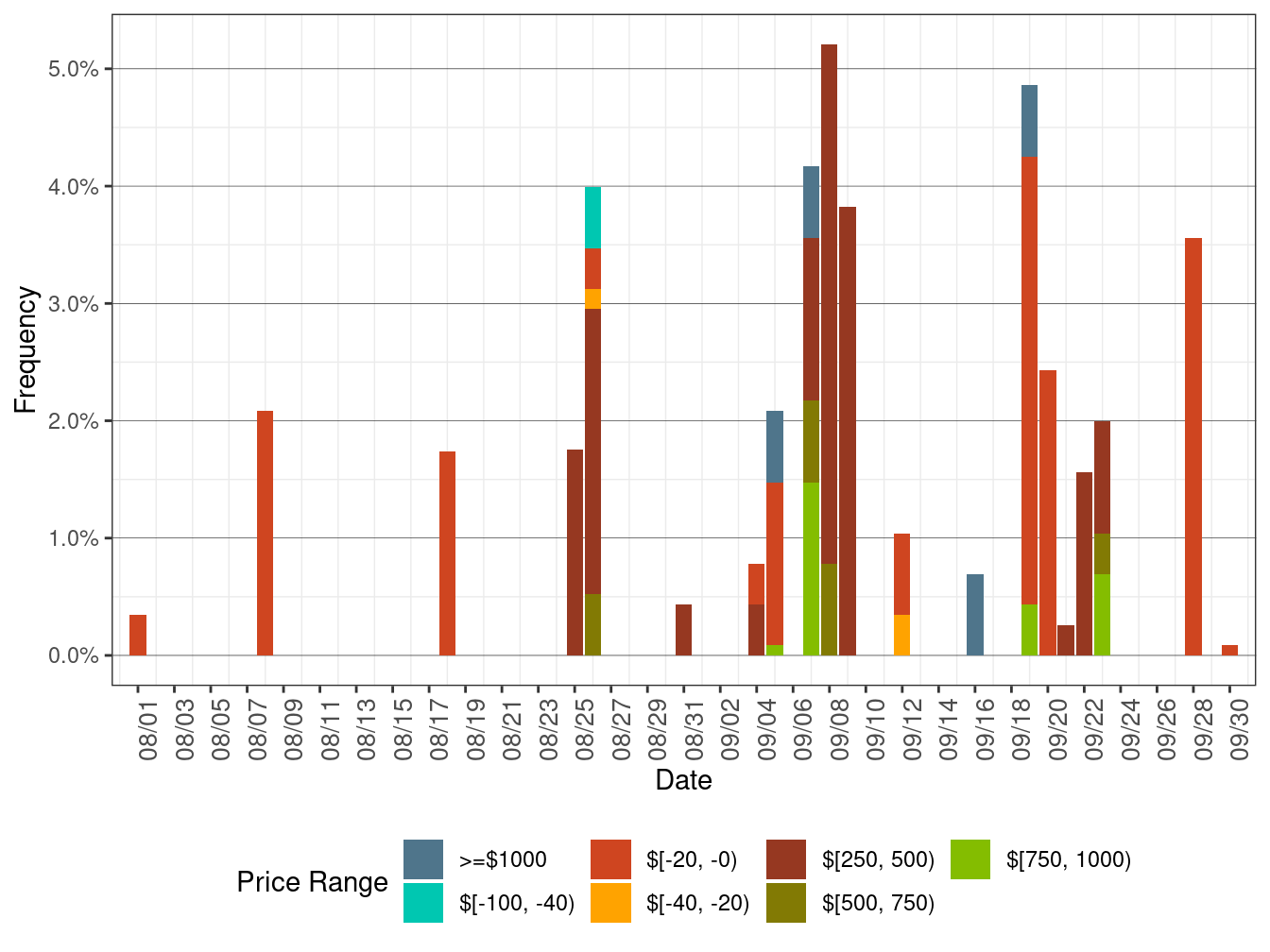3 Market Performance Metrics
Day-Ahead Prices
Figure 2 show the daily simple average load-aggregation points (LAP) prices for each of the four default LAPs (PG&E, SCE, SDG&E, and VEA) for all hours. TABLE 2 below lists the binding constraints along with the associated DLAP locations and the dates when the binding constraints resulted in relatively high or low DLAP prices. On September 8-10, all four DLAP prices were elevated driven by high loads.
Figure 2: Day-Ahead Simple Average LAP Prices (All Hours)
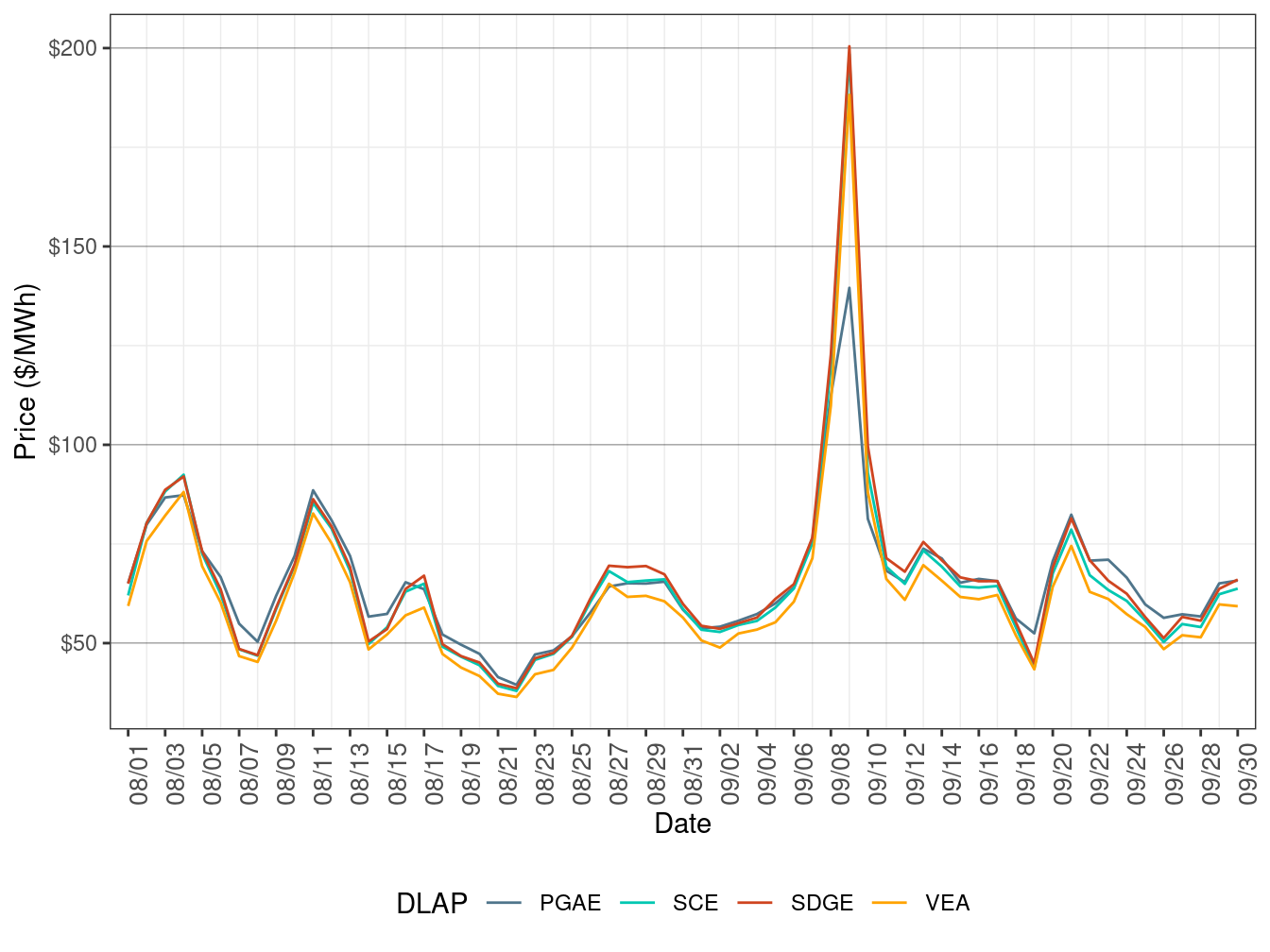
| DLAP | Dates | Transmission Constraint |
|---|---|---|
| SCE, SDGE, VEA | September 9-10 | MIDWAY-VINCENT 500 kV line |
Real-Time Price
Figure 3 show daily simple average LAP prices for all the default LAPs (PG&E, SCE, SDG&E, and VEA) for all hours respectively in FMM. TABLE 3 lists the binding constraints along with the associated DLAP locations and the dates when the binding constraints resulted in relatively high or low DLAP prices. All four DLAP prices spiked on September 7-9 due to upward load adjustment, net import reduction, generation outage and renewable deviation.
Figure 3: FMM Simple Average LAP Prices (All Hours)
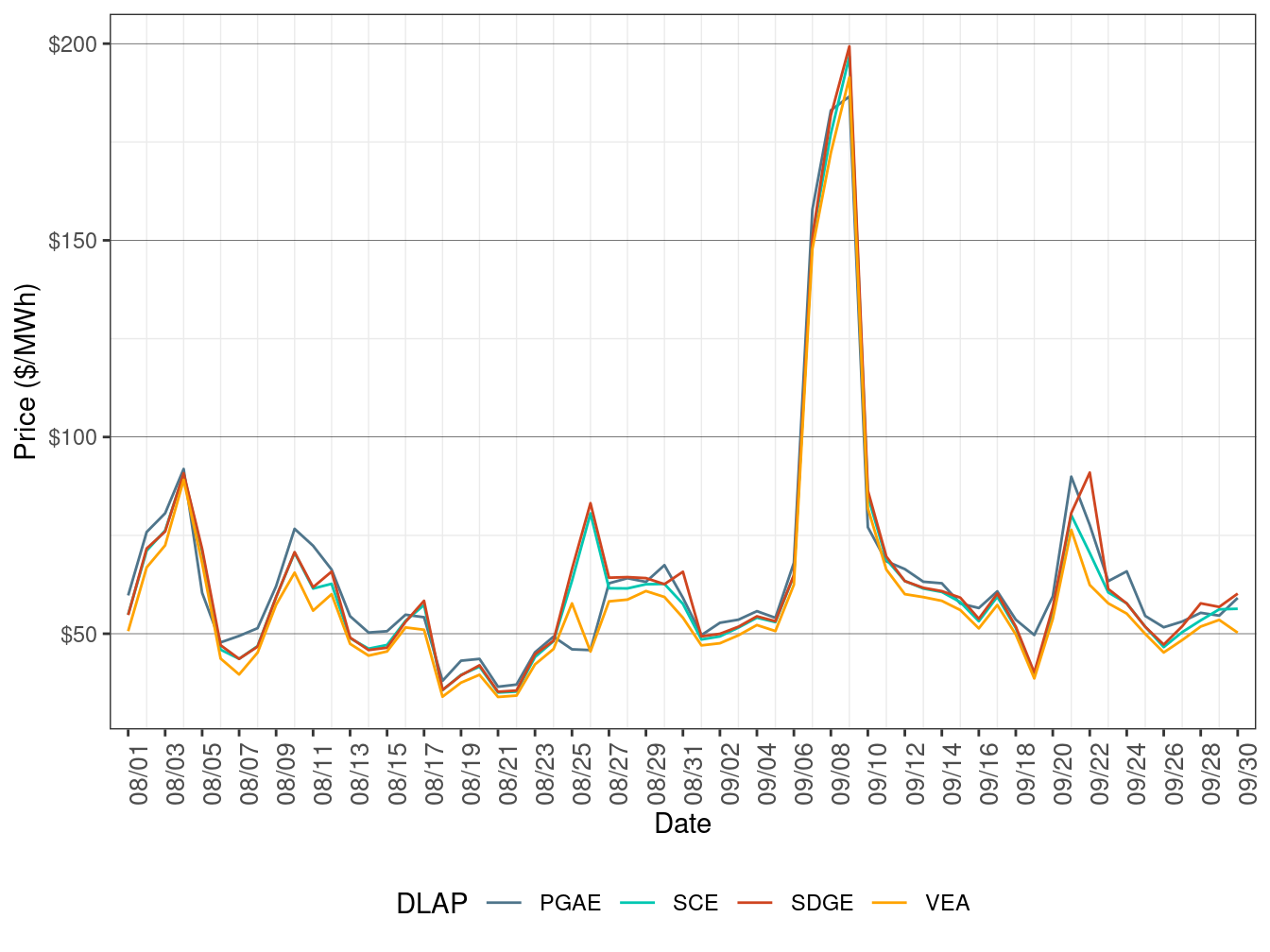
| DLAP | Dates | Transmission Constraint |
|---|---|---|
| SCE, SDGE, VEA | September 9 | MIDWAY-VINCENT-500 kV line, 6410_CP1_NG |
| PGAE | September 19 | PANOCHE-GATES-230 kV line |
Figure 4 below shows the daily frequency of positive price spikes and negative prices by price range for the default LAPs in the FMM. The cumulative frequency of prices above $250/MWh increased to 1.41 percent in September from 0.50 percent in August. The cumulative frequency of negative prices edged up to 0.02 percent in September from 0.01 percent in August.
Figure 4: Daily Frequency of FMM LAP Positive Price Spikes and Negative Prices
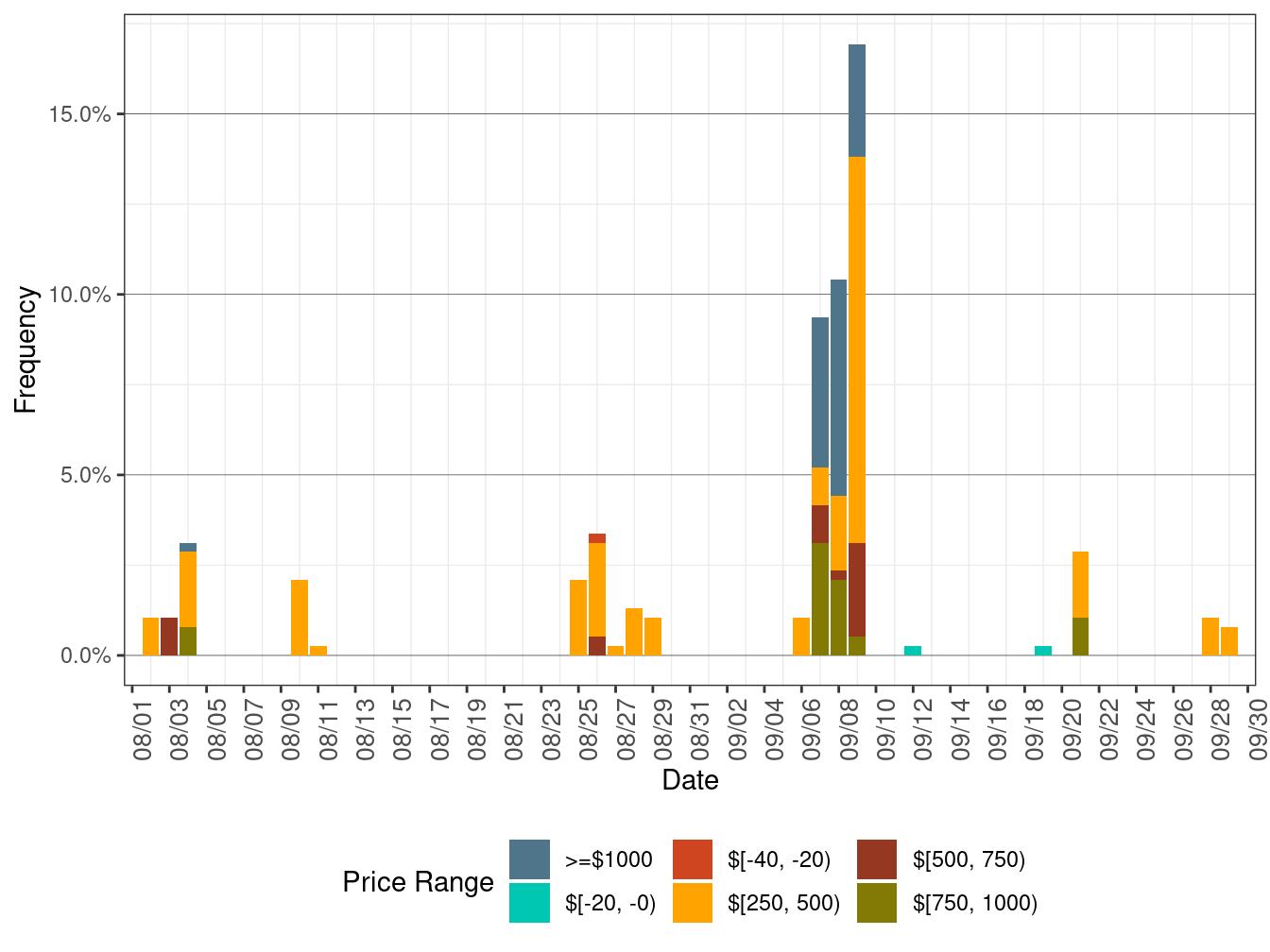
Figure 5 show daily simple average LAP prices for all the default LAPs (PG&E, SCE, SDG&E, and VEA) for all hours respectively in RTD. TABLE 4 lists the binding constraints along with the associated DLAP locations and the dates when the binding constraints resulted in relatively high or low DLAP prices. September 7-9 saw elevated prices for all four DLAPs due to upward load adjustment, net import reduction, generation outage and renewable deviation.
Figure 5: RTD Simple Average LAP Prices (All Hours)
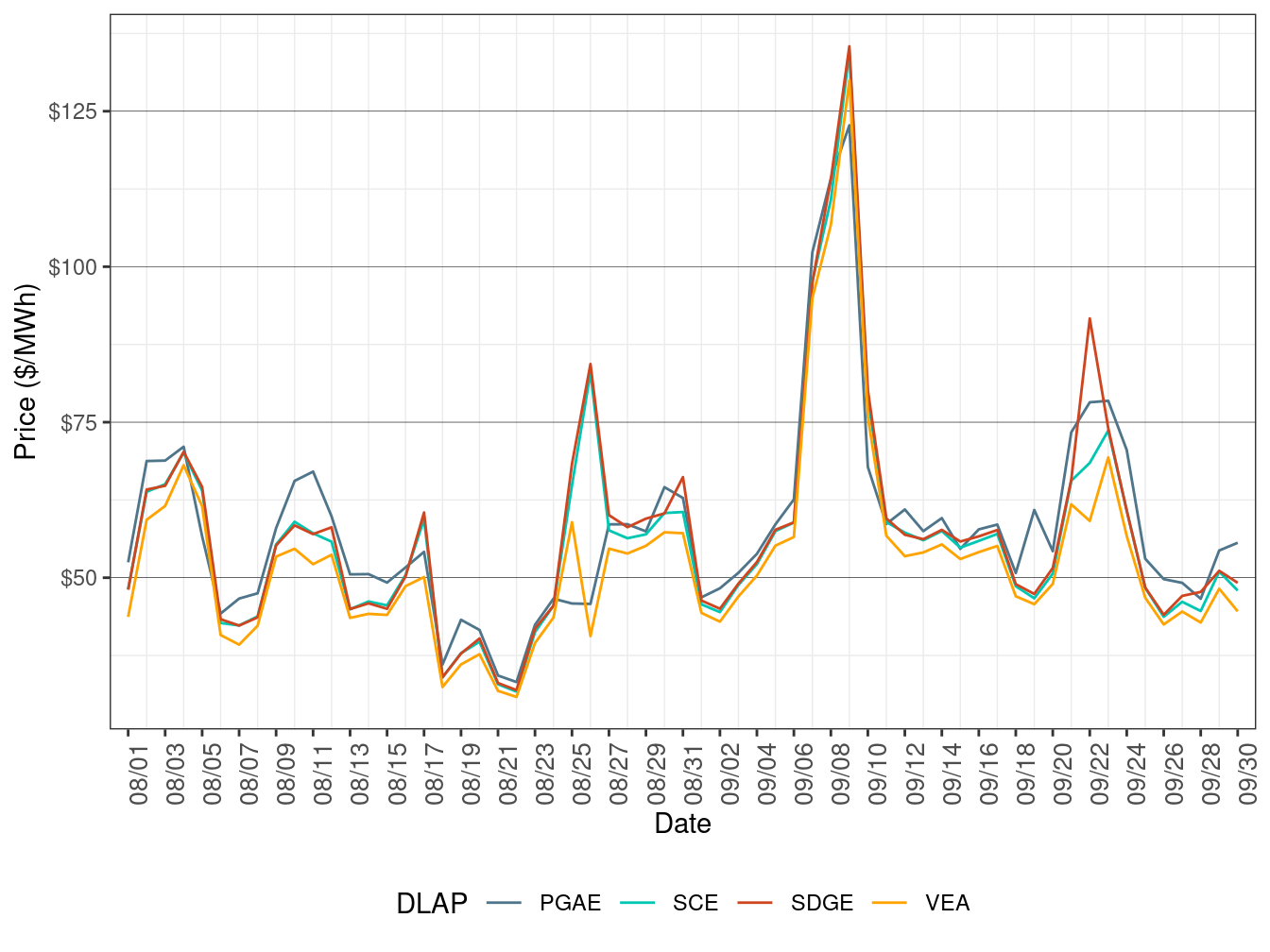
| DLAP | Dates | Transmission Constraint |
|---|---|---|
| SCE, SDGE, VEA | September 9 | MIDWAY-VINCENT-500 kV line, 6410_CP1_NG |
| PGAE | September 19 | GATES1-MIDWAY-500 kV line |
Figure 4 below shows the daily frequency of positive price spikes and negative prices by price range for the default LAPs in RTD. The cumulative frequency of prices above $250/MWh rose to 0.66 percent in September from 0.19 percent in August. The cumulative frequency of negative prices increased to 0.42 percent in September from 0.17 percent in August.
Figure 6: Daily Frequency of RTD LAP Positive Price Spikes and Negative Prices
